
Elephants World, a haven of sanctuary, was set up on the banks of the river Kwai to give these retired working elephants a peaceful home — and it’s also where Royal Academician Paul Barton introduced them to classical piano.
Classical Music for elephants
Paul Barton, a celebrated British portrait artist and concert pianist, went to Thailand in 1996 in search of adventure. Instead, he found love and a quest for life. He and his wife have been working to rehabilitate these elephants for the past 25 years. Ten years ago, on the occasion of his fiftieth birthday, Barton decided to fulfill a long-cherished dream of playing music to blind elephants. He did this by dragging his piano all the way up the mountain where the elephants usually gathered. Though the main purpose of this feat was fundraising, his personal motive for doing it is as enriching as it is inspiring, and he has been playing to them regularly ever since.
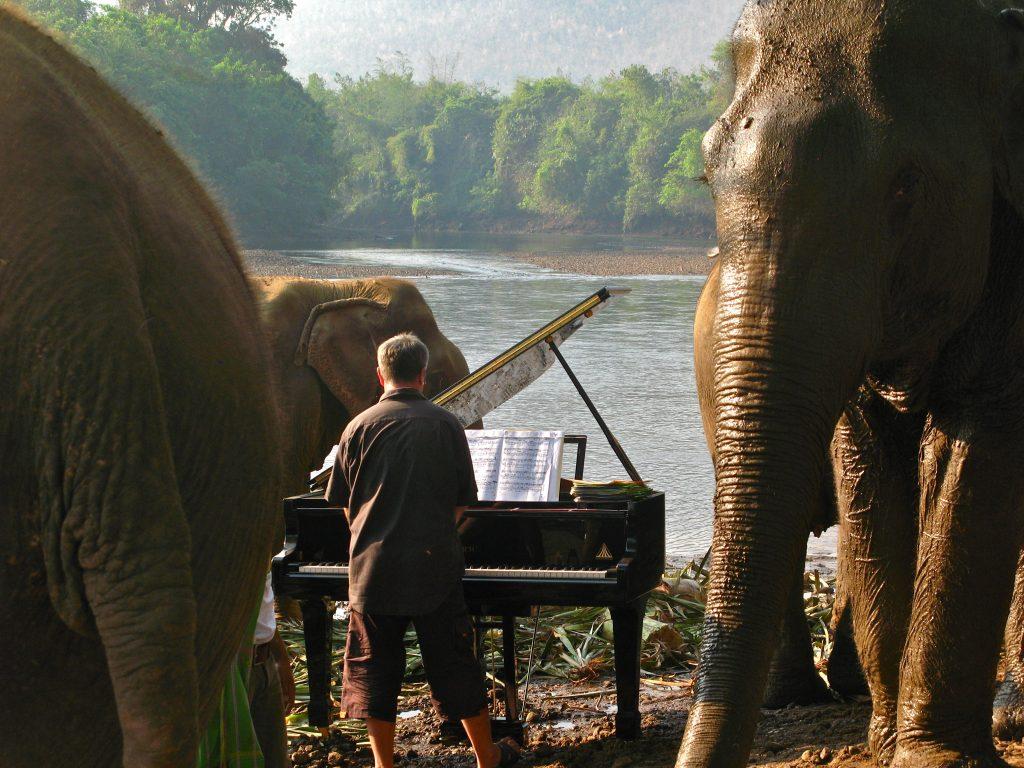
Imagine hearing classical music for the first time. In Elephant’s World, a home for rescued elephants in Thailand, Barton plays piano for blind animals and shows us that it is possible to interact with them in very profound and heart-warming ways. Source: Feurich
Soothing classical music for old, blind elephants
It all started when he and his wife first discovered the sanctuary, Elephants World, online, Barton explains in a video. “We liked the sound of the place being a retirement center for old, injured and handicapped former logging and trekking elephants,” Barton said. “So we paid them a visit. I wondered if these old rescue elephants might like to listen to some slow classical music.”
Barton asked the employees at Elephants World if he could bring his piano and serenade the elephants sometime, and they said yes. The musician returned to Elephants World to perform for the other ailing animals. The sanctuary is home to older elephants, and a few of them are blind. Barton said he believes the music helps calm the elephants.
Source: CBSNews
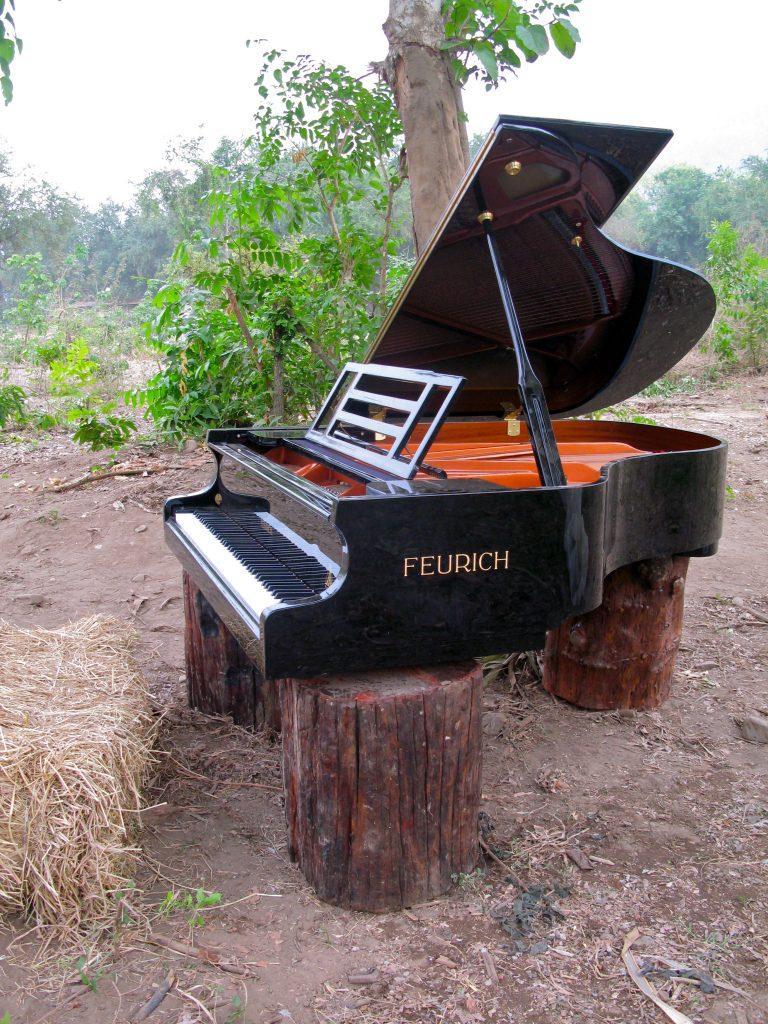
Thai teak wood is considered to be the finest in the world, a fact that has served to reduce the country’s forest cover from 61% to 34% in the twentieth century. From 1975 to 1986 Thailand lost 28% of its remaining forests. Faced with these alarming figures, the government finally came around to enacting a ban on commercial timber logging in 1989. Source: Feurich
Paul Barton backstory
The English pianist, Paul Barton, studied art at the Royal Academy of Arts in London at 16 years old. He won first prizes for portrait painting and portrait drawing in annual student competitions and graduated at 20 years old with the Elizabeth Greenshields Foundation prize. He exhibited at the Royal Academy Summer Exhibition and Royal Society of Portrait Painters.
Barton then decided to start a career as a concert pianist. Although his brilliant performances quickly helped him on his way to the big stage, the multi-talented Englishman soon realised that this way of life was just not for him. At this point, he chose to travel to Thailand for 3 months, and work as a piano teacher. It was here that he met his wife Khwan (married on September 7, 1996), a wildlife artist, and he decided to make Thailand his home. They work together from their studio in Thailand. In Bangkok, he opened his own recording studio, equipped with a FEURICH 218 – Concert I with Pédale Harmonique.
It was here that Barton started a new career that has helped countless pianists over the world to develop their skills: on social media platforms like Youtube, Facebook and Instagram, he provides free tutorials and interpretations of many virtuoso masterpieces from the classical music repertoire. His international fan base wait with bated breath for every new video he releases.
Barton’s portrait sitters include the prominent British politicians Roy Jenkins, Sir David Steel, and business leaders, Sir John Harvey Jones. Private commissions include entertainment personalities, actors, writers, musicians and numerous individual and family portrait groups.
He has also had a wide-reaching influence on many peoples’ lives outside the world of classical piano.
Source: Bach-cantatas.com
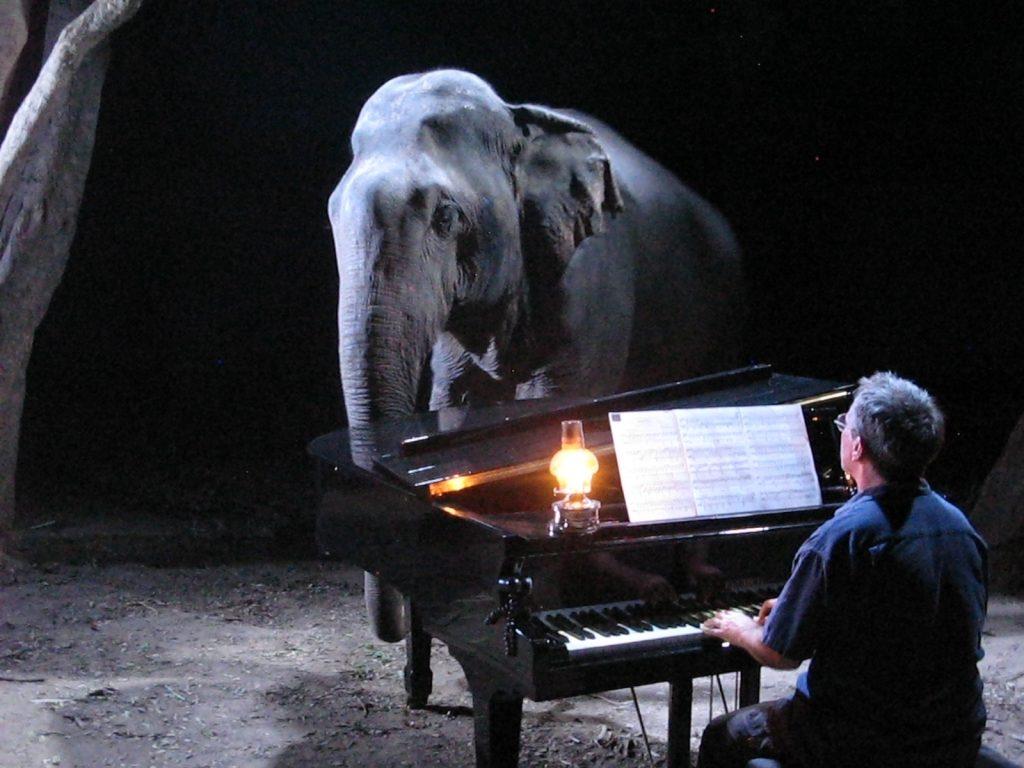
The worst victims of this forestland massacre were those gentle beings whose home that forest was. Stripped of their freedom, these elephants were made to carry heavy logs of wood through the jungles and abused and mistreated to no end. The twigs and branches would scratch their eyes and draw blood from all over their body. Source: Feurich
Why the sanctuary is needed
Thai teak wood is considered to be the finest in the world, a fact that has served to reduce the country’s forest cover from 61% to 34% in the twentieth century. From 1975 to 1986 Thailand lost 28% of its remaining forests. Faced with these alarming figures, the government finally came around to enacting a ban on commercial timber logging in 1989.
The worst victims of this forestland massacre were those gentle beings whose home that forest was. Stripped of their freedom, these elephants were made to carry heavy logs of wood through the jungles and abused and mistreated to no end. The twigs and branches would scratch their eyes and draw blood from all over their body.
When the ban on deforestation was enacted, these elephants were rendered ‘unemployed’, mostly blind because of the injuries they suffered during the course of their ‘employment’ and with no training on how to survive on their own.
Source: YourStory

When the ban on deforestation was enacted, these elephants were rendered ‘unemployed’, mostly blind because of the injuries they suffered during the course of their ‘employment’ and with no training on how to survive on their own. Source: YourStory

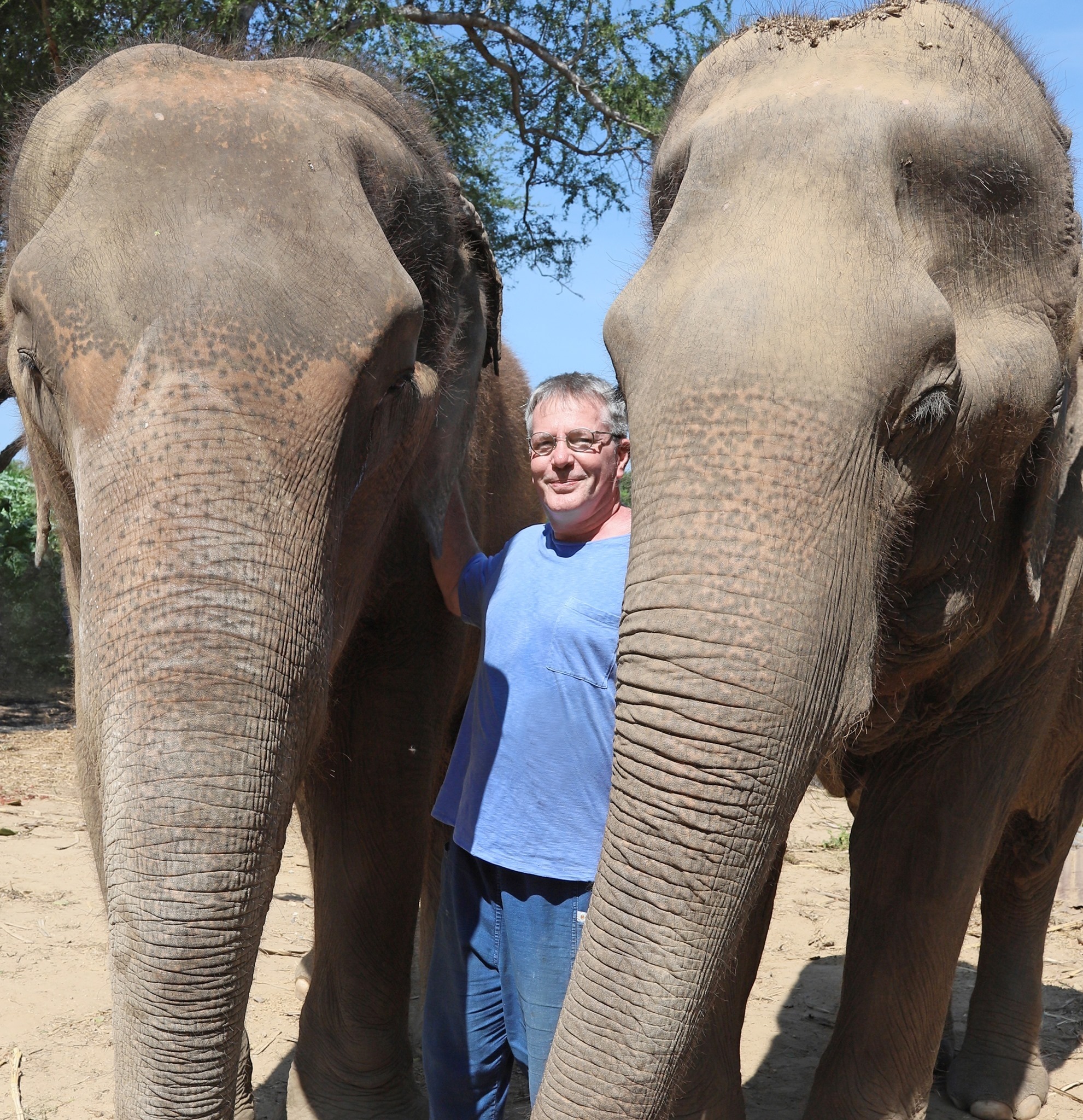
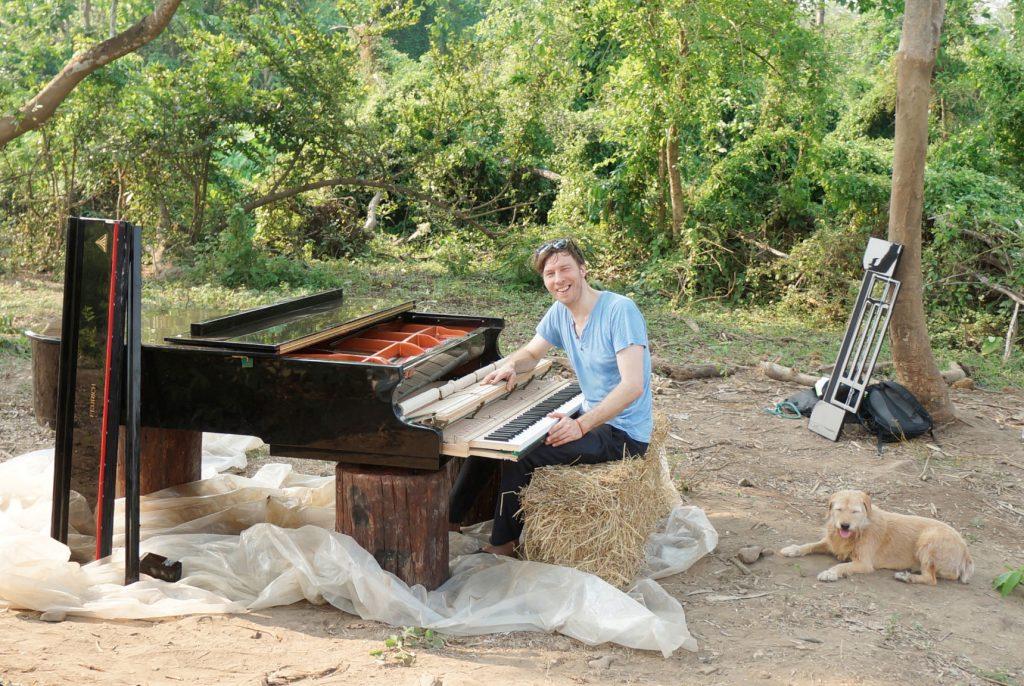
This article was first published on Dec 20, 2021.
6 WAYS TO HELP ELEPHANTS
None of us can single-handedly stop the ivory trade, but we are not helpless — as much as it may feel like it. Treehugger suggest six actions we can take to support these grand creatures.